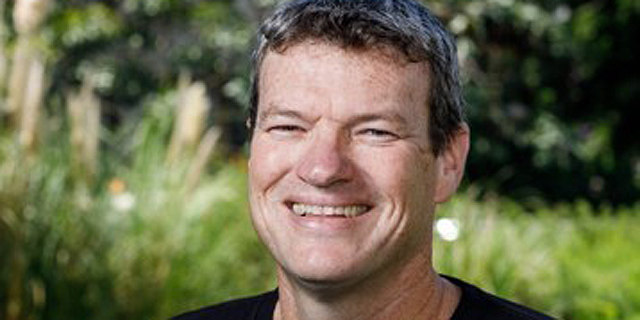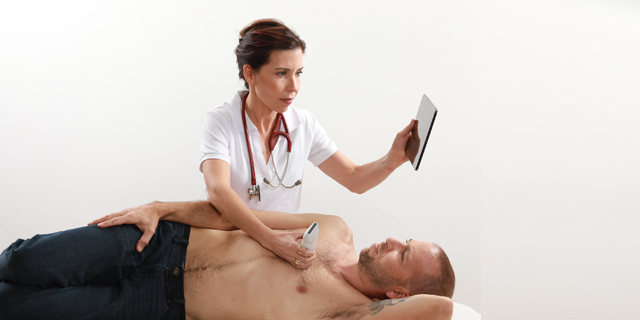
UltraSight and GE Healthcare partner to bring cardiac point of care ultrasound to space
The technology is developed through the partnership to monitor the heart of astronauts during the ‘Rakia’ space mission
Cardiac ultrasound with real-time AI guidance provider UltraSight has announced a collaboration with GE Healthcare, to conduct a cardiac study aboard the Axiom ‘Rakia’ space mission and to complete the Preliminary Design Review (PDR) for Cardiac Point of Care Ultrasound (POCUS). During the study, UltraSight’s AI guidance software and GE Healthcare’s wireless pocket-sized ultrasound Vscan Air will record images of an astronaut’s heart in microgravity.
“Easy access to cardiac diagnostic imaging and a small and durable, wireless ultrasound device that can perform under arduous space conditions would be hugely important,” explained Davidi Vortman, CEO of UltraSight. “It could allow the monitoring of space crews’ health and provide critical information on whether immediate intervention is necessary. Vscan Air fits the bill. We are excited to collaborate with GE Healthcare and lead a new wave of medical innovation in space.” The aim of the study is to show how accurate cardiac ultrasound images can be obtained from space and how AI guidance can help with successful scanning with minimal training. During the mission, Israel’s first astronaut to visit the International Space Station Lt. Col. Eytan Stibbe will use GE Healthcare’s Vscan Air device with UltraSight AI to take his own images without the help of a trained medical professional or ground mission control. Outcomes of the study have the potential to serve underserved patients worldwide in low-income communities or where access to echocardiography labs is limited. “The upcoming space mission aims to demonstrate the added value AI could have for Point of Care Ultrasound in providing flexible and timely access to diagnostic information anywhere and anytime,” added James Hurley, General Manager, Handheld Ultrasound at GE Healthcare. “From the farthest place you can imagine, which is space, to the primary and acute care settings in local communities worldwide, this technology plays a critical role in providing patients with accurate and timely diagnosis of cardiac conditions and other diseases.”Related Stories
In May 2021, UltraSight was selected by the Israel Space Agency to conduct the cardiac study aboard the ‘Rakia’ space mission. Col. Stibbe said he was “happy to play a role in testing medical innovation that has the potential to improve patient access to advanced medical care around the world,” and Eran Schenker, MD, Chief Innovation Medical Officer, Israeli Aerospace Medicine Institute (IAMI) added that “space agencies are looking for an ultrasound solution with the features provided by GE Healthcare and UltraSight not only for the international space station, but to also assist with upcoming missions including Artemis to the moon, and soon after to Mars.”
UltraSight was founded in 2018 and in 2020 won the TCT Innovation Competition, which took place during the Transcatheter Cardiovascular Therapeutics world conference. It has raised $15.2 million over three rounds. GE Healthcare is the healthcare sector of GE and worth $18 billion. It helps clinicians with intelligent devices, data analytics, applications, and services with its Edison intelligence platform. It created the first Vscan in 2010 and in July 2011, its VividTM q cardiovascular ultrasound system went to the ISS.